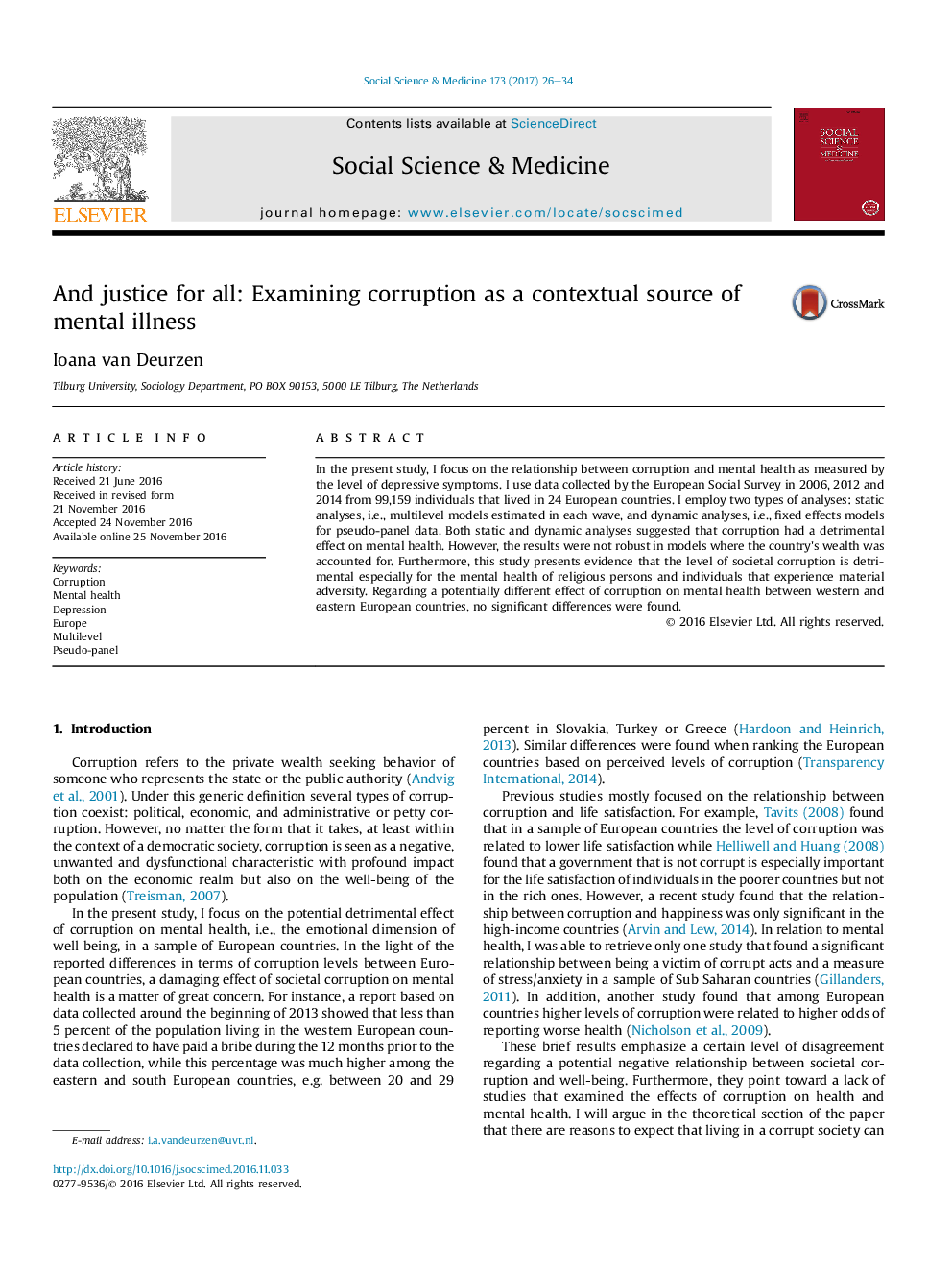| Article ID | Journal | Published Year | Pages | File Type |
|---|---|---|---|---|
| 5046766 | Social Science & Medicine | 2017 | 9 Pages |
â¢Corruption related to depressive symptoms.â¢Wealth of the country attenuates the relationship found.â¢Poor and religious persons more affected by corruption.
In the present study, I focus on the relationship between corruption and mental health as measured by the level of depressive symptoms. I use data collected by the European Social Survey in 2006, 2012 and 2014 from 99,159 individuals that lived in 24 European countries. I employ two types of analyses: static analyses, i.e., multilevel models estimated in each wave, and dynamic analyses, i.e., fixed effects models for pseudo-panel data. Both static and dynamic analyses suggested that corruption had a detrimental effect on mental health. However, the results were not robust in models where the country's wealth was accounted for. Furthermore, this study presents evidence that the level of societal corruption is detrimental especially for the mental health of religious persons and individuals that experience material adversity. Regarding a potentially different effect of corruption on mental health between western and eastern European countries, no significant differences were found.
